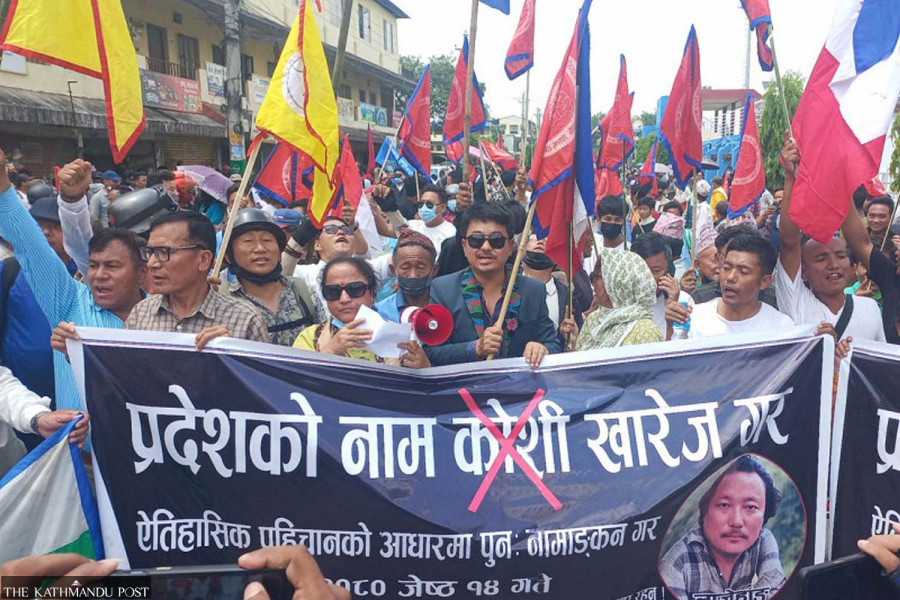Editorial
The Koshi crisis
Provincial representatives of parties must get the centre’s full support to come to a settlement.
It has been over three months since Province 1 was officially named “Koshi”, a name the provincial assembly approved with a thumping majority. The years-long dispute could be resolved only after the Nepali Congress, the CPN-UML, the CPN (Maoist Centre) and the Rastriya Prajatantra Party all stood in favour of the new name. The second Constituent Assembly, while promulgating the constitution in 2015, had left the key tasks of fixing provincial capitals and naming the provinces unfinished, entrusting the concerned assemblies to do the needful. The naming of the Koshi province (the last of the seven to be named) was celebrated as the conclusion of the two major unfinished tasks of federalism.
But the celebration couldn’t last long. Various ethnic communities of the region immediately took to the street to protest against the new name. They said the province name should reflect the ethnic identities of the region’s dominant communities. Since they started the agitation, the protests have at times turned violent. Padam Bahadur Limbu succumbed to head injuries he had sustained during a police assault. Scores of other demonstrators have been injured.
The protests that were initially confined in provincial headquarters of Biratnagar have spread to other districts. As the situation got complicated, the provincial government on Wednesday formed a team comprising three provincial ministers to talk to the agitating groups. But this is too little too late. The government should have done this much earlier. As things now stand, the dialogue team simply doesn’t have the mandate to resolve what is a serious political problem.
With the CPN (Maoist Centre) quitting the Cabinet on Tuesday, the UML-led provincial government has fallen into a minority. Another coalition partner Janata Samajbadi Party had also pulled out a week ago. As the UML-led coalition, which is now backed only by the Rastriya Prajatantra Party, loses its majority in the assembly, the Congress and the Maoist Centre are competing to lead the new government. So, while the province is burning, the parties have again started jockeying for power.
The big parties have failed to deal with the matter with the sensitivity it deserves. Some of our politicians even tried to sow ethnic divisions for their vested interest, which is playing with fire. Though all the major political parties including the Congress, the UML, the Maoist Centre and the RPP joined hands to endorse the new name on March 1, some including the Maoist Centre immediately changed their stance. It had been a mistake to compromise on the party’s once strong stand in favour of identity-based nomenclature, the party later clarified. The UML had taken the initiative to finalise the new name, as it was heading the provincial government at the time. The agitating groups are thus particularly angry with the UML leaders including its chair KP Sharma Oli, a vocal critic of ethnicity-based federalism.
Delineating and naming the provinces was easily the toughest of all agendas that had to be resolved during the seven combined years of the constituent assemblies. Those closely involved in the constitution-making process, including nearly all top leaders in the country today, understand the gravity of the matter. Only if they are serious will this issue be resolved. For one, the provincial representatives of political parties must get the centre’s full support and be given the mandate to come to a negotiated settlement. Otherwise, if this spark lit in eastern Nepal is allowed to spread, it could burn down the whole federal edifice.




 10.12°C Kathmandu
10.12°C Kathmandu













